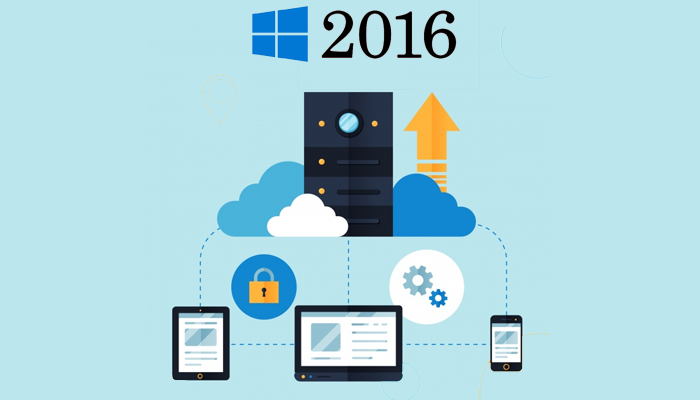Introduction
This is top class certification exam of Microsoft. It is designed by group of Microsoft advanced level official certification experts. It has covered all the aspects of depth in the technical questions and delivery methodology of official Microsoft certification by following the complete exam syllabus. This certification questions will give you the most realistic experience in the real world exam.
Exam Details:
This Exam contains multiple choices, multi selection and true or false questions.
Exam Time Limit: 90 Minutes
Exam Syllabus:
Install
Windows Servers in Host and Compute Environments (10-15%)
- Install,
upgrade, and migrate servers and workloads
·
This objective may include but is not limited to: Determine
Windows Server 2016 installation requirements; determine appropriate Windows
Server 2016 editions per workloads; install Windows Server 2016; install
Windows Server 2016 features and roles; install and configure Windows Server
Core; manage Windows Server Core installations using Windows PowerShell,
command line, and remote management capabilities; implement Windows PowerShell
Desired State Configuration (DSC) to install and maintain integrity of
installed environments; perform upgrades and migrations of servers and core
workloads from Windows Server 2008 and Windows Server 2012 to Windows Server
2016; determine the appropriate activation model for server installation, such
as Automatic Virtual Machine Activation (AVMA), Key Management Service (KMS),
and Active Directory-based Activation
- Create,
manage, and maintain images for deployment
·
This objective may include but is not limited to: Plan for Windows
Server virtualization; assess virtualization workloads using the Microsoft
Assessment and Planning (MAP) Toolkit; determine considerations for deploying
workloads into virtualized environments; update images with patches, hotfixes,
last cumulative updates and drivers; install roles and features in offline
images; manage and maintain Windows Server Core, and VHDs using Windows
PowerShell
Implement Storage Solutions
(10-15%)
- Configure
disks and volumes
·
This objective may include but is not limited to: Configure sector
sizes appropriate for various workloads; configure GUID partition table (GPT)
disks; create VHD and VHDX files using Disk Management or Windows PowerShell;
mount virtual hard disks; determine when to use NTFS and ReFS file systems;
configure NFS and SMB shares using Server Manager; configure SMB share and
session settings using Windows PowerShell; configure SMB server and SMB client
configuration settings using Windows PowerShell; configure file and folder
permissions
- Implement
server storage
·
This objective may include but is not limited to: Configure
storage pools; implement simple, mirror, and parity storage layout options for
disks or enclosures; expand storage pools; configure Tiered Storage; configure
iSCSI target and initiator; configure iSNS; configure Datacenter Bridging
(DCB); configure Multi-Path IO (MPIO); determine usage scenarios for Storage
Replica; implement Storage Replica for server-to-server, cluster-to-cluster,
and stretch cluster scenarios
- Implement
data deduplication
·
This objective may include but is not limited to: Implement and
configure deduplication; determine appropriate usage scenarios for
deduplication; monitor deduplication; implement a backup and restore solution
with deduplication
Implement Hyper-V (20-25%)
- Install
and configure Hyper-V
·
This objective may include but is not limited to: Determine
hardware and compatibility requirements for installing Hyper-V; install
Hyper-V; install management tools; upgrade from existing versions of Hyper-V;
delegate virtual machine management; perform remote management of Hyper-V
hosts; Using Windows PowerShell Direct; implement nested virtualization
- Configure
virtual machine (VM) settings
·
This objective may include but is not limited to: Add or remove
memory in a running VM; configure dynamic memory; configure Non-Uniform Memory
Access (NUMA) support; configure smart paging; configure Resource Metering;
manage Integration Services; create and configure Generation 1 and 2 VMs and
determine appropriate usage scenarios; implement enhanced session mode; create
Linux and FreeBSD VMs; install and configure Linux Integration Services (LIS);
install and configure FreeBSD Integration Services (BIS); implement Secure Boot
for Windows and Linux environments; move and convert VMs from previous versions
of Hyper-V to Windows Server 2016 Hyper-V; export and import VMs; implement
Discrete Device Assignment (DDA), Troubleshoot VM configuration versions
- Configure
Hyper-V storage
·
This objective may include but is not limited to: Create VHDs and
VHDX files using Hyper-V Manager; create shared VHDX files; configure
differencing disks; modify virtual hard disks; configure pass-through disks;
resize a virtual hard disk; manage checkpoints; implement production
checkpoints; implement a virtual Fibre Channel adapter; configure storage
Quality of Service (QoS)
- Configure
Hyper-V networking
·
This objective may include but is not limited to: Add and remove
virtual network interface cards (vNICs); configure Hyper-V virtual switches;
optimize network performance; configure MAC addresses; configure network
isolation; configure synthetic and legacy virtual network adapters; configure
NIC teaming in VMs; configure virtual machine queue (VMQ); enable Remote Direct
Memory Access (RDMA) on network adapters bound to a Hyper-V virtual switch
using Switch Embedded Teaming (SET); configure Bandwidth Management
Implement Windows Containers
(5-10%)
- Deploy
Windows containers
·
This objective may include but is not limited to: Determine
installation requirements and appropriate scenarios for Windows Containers;
install and configure Windows Server container host in physical or virtualized
environments; install and configure Windows Server container host to Windows
Server Core in a physical or virtualized environment; install Docker Enterprise
Edition on Windows Server; configure Docker start-up options; install a base
container image; tag an image; remove a container; create Windows Server
containers; create Hyper-V containers
- Manage
Windows containers
·
This objective may include but is not limited to: Manage Windows
containers by using Docker CLI; manage container networking; manage container
data volumes; manage Resource Control; create new container images using
Dockerfile; manage container images using DockerHub repository for public and
private scenarios; manage container images using Microsoft Azure
Implement High Availability
(30-35%)
- Implement
high availability and disaster recovery options in Hyper-V
·
This objective may include but is not limited to: Implement
Hyper-V Replica; implement Live Migration including Shared Nothing Live
Migration; configure CredSSP or Kerberos authentication protocol for Live
Migration; implement storage migration
- Implement
failover clustering
·
This objective may include but is not limited to: Implement
Workgroup, Single, and Multi Domain clusters; configure quorum; configure
cluster networking; restore single node or cluster configuration; configure
cluster storage; implement Cluster-Aware Updating; implement Cluster Operating
System Rolling Upgrade; configure and optimize cluster shared volumes (CSVs);
configure clusters without network names; implement Scale-Out File Server
(SoFS); determine different scenarios for the use of SoFS vs. File Server for
general use; determine usage scenarios for implementing guest clustering;
implement a Clustered Storage Spaces solution using Shared SAS storage
enclosures; implement Storage Replica; implement Cloud Witness; implement VM
resiliency; implement shared VHDX as a storage solution for guest clusters
- Implement
Storage Spaces Direct
·
This objective may include but is not limited to: Determine
scenario requirements for implementing Storage Spaces Direct; enable Storage
Spaces Direct using Windows PowerShell; implement a disaggregated Storage
Spaces Direct scenario; implement a hyper-converged Storage Spaces Direct
scenario
- Manage
failover clustering
·
This objective may include but is not limited to: Configure
role-specific settings, including continuously available shares; configure VM
monitoring; configure failover and preference settings; implement stretch and
site-aware failover clusters; enable and configure node fairness
- Manage
VM movement in clustered nodes
·
This objective may include but is not limited to: Perform a live
migration; perform a quick migration; perform a storage migration; import,
export, and copy VMs; configure VM network health protection; configure drain
on shutdown
- Implement
Network Load Balancing (NLB)
·
This objective may include but is not limited to: Install NLB
nodes; configure NLB prerequisites; configure affinity; configure port rules;
configure cluster operation mode; upgrade an NLB cluster
Maintain and Monitor Server
Environments (10-15%)
- Maintain
server installations
·
This objective may include but is not limited to: Implement
Windows Server Update Services (WSUS) solutions; configure WSUS groups; manage
patch management in mixed environments; implement an antimalware solution with
Windows Defender; integrate Windows Defender with WSUS and Windows Update;
perform backup and restore operations using Windows Server Backup; determine
backup strategies for different Windows Server roles and workloads, including Hyper-V
Host, Hyper-V Guests, Active Directory, File Servers, and Web Servers using
Windows Server 2016 native tools and solutions
- Monitor
server installations
·
This objective may include but is not limited to: Monitor
workloads using Performance Monitor, Server Manager, Event Viewer; configure
Data Collector Sets; determine appropriate CPU, memory, disk, and networking
counters for storage and compute workloads; configure alerts; monitor workloads
using Resource Monitor, manage and monitor Windows Server by using Windows
Admin Center
How this exam is useful to you?
This exam is intended for the people who are preparing for the 70-740 Installation-Storage and Compute with Windows Server 2016 Certification. This exam is prepared exclusively as per the real certification exam. This will definitely help to check your skills before attempting the main exam. Also it will give the complete idea how main exam will be.
This exam will evaluate your skills and will give you report on how far you are skillful in 70-740 Installation-Storage and Compute with Windows Server 2016 certification exam.
In case you face any issues during the exam or you have any queries, email us at [email protected]
Wish you all the best for your certification exam and we are always ready to help you to get certified and grow in your career.
-
Adrian
Very Systematic Windows Server 2016 exam
-
Anderson
Nothing makes you more happy than writing this Windows Server 2016 certification exam
-
Carlos
Gave great amount of confidence
-
Agathe
What an amazing place this is!
-
Zevarre
After writing the real Windows Server 2016 I came here almost equal
-
Sueus
Loved and liked it
-
Dennis
Amazing exam experience
-
Wadelle
Technically one of the best exam I have ever seen.
-
Akash
Good standards
-
Sanchez
I got premium in real Windows Server 2016 certification exam
-
Sam
Satisfied to review
-
Peaches
Very confident level of exam experience
-
Mahita
Superb
-
Charles
I never thought I can pass Windows Server 2016 certification exam
-
Raghava
Everything is in very detailed in this Windows Server 2016 certification
-
Thiago Velde
God great confidence on this Windows Server 2016
-
Henricks
All your words are real
-
Klian
You gave me strength
-
Ramya Mijlani
Just because of this Windows Server 2016 certification exam real confidence
-
Richard
Very resourceful
-
Tarun
Good quality
-
Glori
So happy to share the feedback in Windows Server 2016 certification
-
Serena
Everything is very clearly maintained in the Windows Server 2016 certification exam
-
Nuer
Outstanding
-
Saransh
Awesome and amazing exam experience
-
Raju
Excellently maintained like real Windows Server 2016 certification exam
-
Pablo
Highly impressive
-
Tintu
Me and my friend got very good exam experience
-
Arun
The maintenance of exam is on par with real certification exam
-
Strong
After coming here I got confidence
-
Karan
Best exam
-
Niharika
Worthable and affordable
-
Madhu
All real time
-
Livia
Finally decided to do the Windows Server 2016 certification exam so much
-
Reyn
Great advantage by writing this exam
-
Dominica
Writing this has given me one of the best feeling
-
Pradeep
You made me grow
-
Shuan
This is a best real time certification exam Windows Server 2016
Exam Details:
This Exam contains multiple choices, multi selection and true or false questions.
Exam Time Limit: 90 Minutes
Check the instructions before starting the exam:
Read the exam instructions carefully and follow them to avoid any issues while writing the exam.
· Check the exam time limit before you start the exam.
· It is highly recommended to have faster internet access.
· No power cut shall happen during the exam. Hence the power backup for your system/laptop.
· In case your system/laptop gets shut down abruptly due to power cut, internet connectivity issues or any other reasons, your exam will be ended and will be considered as one attempt completed.
· Exam browser window shall not be closed once exam starts otherwise exam will be ended abruptly and same with losing your attempt as well.
· While writing the exam, if you click on back button of the browser tab then your exam will be ended abruptly and attempt will be lost. Hence it is highly recommended not use to back button of the browser button while/after writing the exam.
· Once exam time is completed, exam will be submitted automatically. Hence it is recommended to keep checking the timer which will be available at the exam window.
In case you face any issues during the exam, please email us at [email protected]
Copy Rights:
These are exams are prepared exclusively by Vullam experts team. This is copy right content. Copying or distribution of any of the exam content will considered as the violation of the terms and conditions and strict action will be taken against him/her as per the law.
Once Exam Starts:
· Once you click on the Start the Exam button, your exam starts.
· Timer at the right side of the exam page indicates the time remaining.
· Use Previous Question or Next Question buttons only to go to previous question or to go next question respectively.
· You can also find the questions right side of the exam window where you can select the question which you wanted to answer first.
· Once all questions are answered, you can submit all the answers.
· If you do not submit all the answers, your exam will not be evaluated and you will lose the exam attempt.
· Even if exam time out is done, exam will be submitted automatically
Once after exam is submitted:
· Once exam is submitted, your result will be shown in the screen immediately.
· Result shows Pass/Fail along with the achieved score.
· In the result user can find the questions which were answered correct and wrong.
· Once exam is submitted, result will emailed to the registered email id of the user.
· If the result is Pass then user will get the certificate of the exam to their registered email id.
In case you face any issues during the exam or you have any queries, email us at [email protected]
Wish you all the best for your certification exam and we are always ready to help you to get certified and grow in your career.
You have not purchased/ subscribed this exam so no data available.
You have not purchased/ subscribed this exam so no data available.
Please subscribe to this exam to view the exam documents.





































